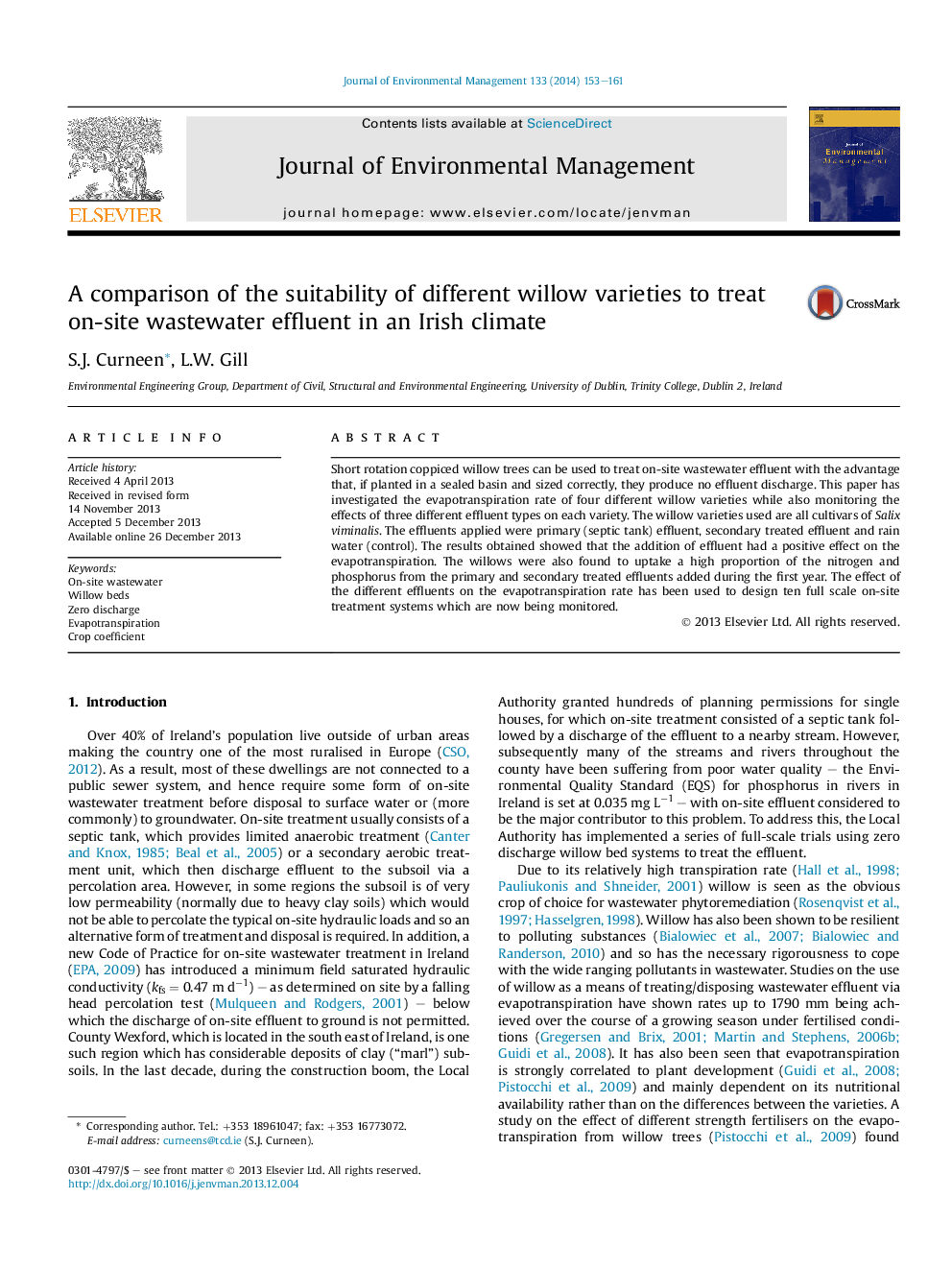| کد مقاله | کد نشریه | سال انتشار | مقاله انگلیسی | نسخه تمام متن |
|---|---|---|---|---|
| 1055835 | 1485279 | 2014 | 9 صفحه PDF | دانلود رایگان |
• The experiment examined the effect of different effluent types on willow cultivars.
• The highest biomass and ET was found in cultivars receiving septic tank effluent.
• The willow cultivars absorbed a high percentage of the nutrient compounds added.
• The seasonal ET ranged from 611 to 1165 mm for the willow cultivars.
• The variety of cultivar had no effect on ET, nutrient uptake or biomass.
Short rotation coppiced willow trees can be used to treat on-site wastewater effluent with the advantage that, if planted in a sealed basin and sized correctly, they produce no effluent discharge. This paper has investigated the evapotranspiration rate of four different willow varieties while also monitoring the effects of three different effluent types on each variety. The willow varieties used are all cultivars of Salix viminalis. The effluents applied were primary (septic tank) effluent, secondary treated effluent and rain water (control). The results obtained showed that the addition of effluent had a positive effect on the evapotranspiration. The willows were also found to uptake a high proportion of the nitrogen and phosphorus from the primary and secondary treated effluents added during the first year. The effect of the different effluents on the evapotranspiration rate has been used to design ten full scale on-site treatment systems which are now being monitored.
Journal: Journal of Environmental Management - Volume 133, 15 January 2014, Pages 153–161
